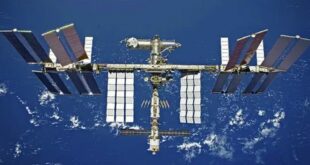
Ibadan, 5 December 2023. – The United States, United Kingdom, and Australia have announced the Deep Space Advanced Radar Capability (DARC) trilateral initiative to provide 24/7, all-weather capabilities. The capabilities will subsequently increase the ability to detect, track, identify and characterize objects in deep space. The memorandum of understanding between the three countries will last 22 years.
DARC will offer higher sensitivity, better accuracy, increased capacity and more agile tracking than current radars capable of tracking objects in Geosynchronous Earth Orbit. Its ability to provide global monitoring extends beyond inclement weather and daylight, which are limitations of current ground-based optical systems. The capability will also help to protect the essential services that rely on satellites and communication from space, including everyday aspects of modern life such as mobile phones and TV.
Speaking on DARC, U.S. Assistant Secretary of Defense for Space Policy, Dr. John Plumb, “The Deep Space Advanced Radar Capability will leverage the geography of the United States, Australia, and the United Kingdom to further enhance our collective space domain awareness: the ability to track, identify and characterize space objects. Space domain awareness is foundational to responsible space operations, and it is essential for responding to activity in space, whether that activity is routine or hostile.”
“As the world becomes more contested and the danger of space warfare increases, the U.K. and our allies must ensure we have the advanced capabilities we need to keep our nations safe,” U.K. Defense Secretary Grant Shapps said. “Today’s announcement of a global radar network (DARC), based across the U.K., U.S. and Australia, will do just that, empowering the U.K. to detect, track and identify objects in deep space.”
 SpaceWatch.Global An independent perspective on space
SpaceWatch.Global An independent perspective on space


